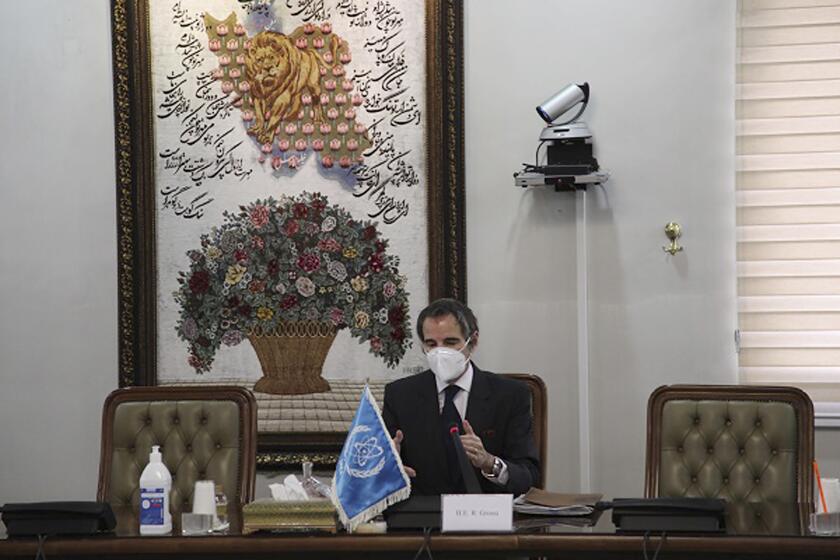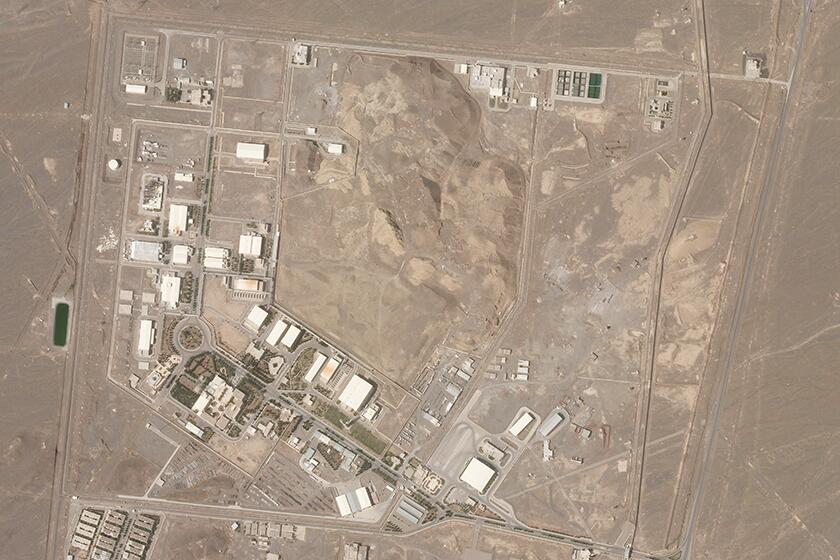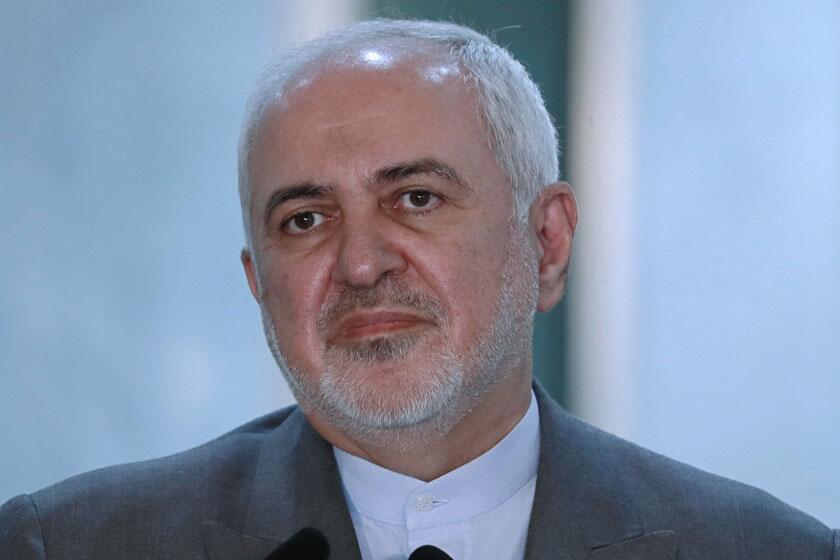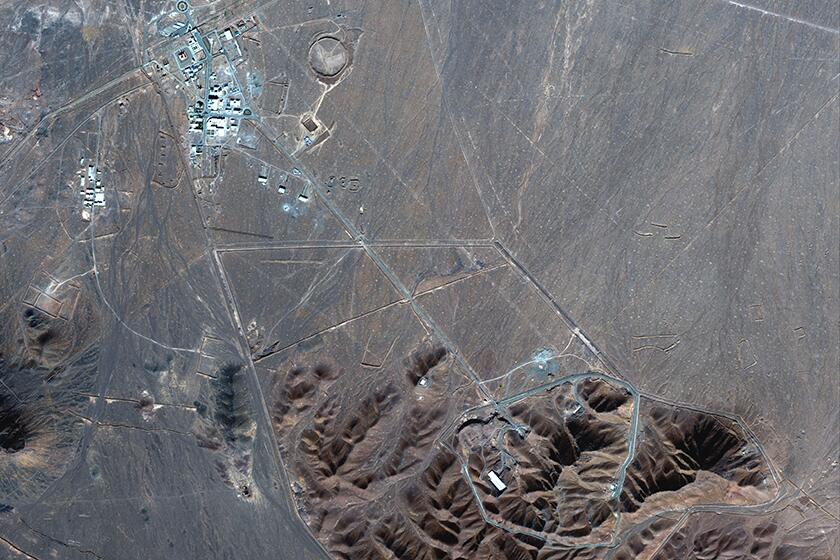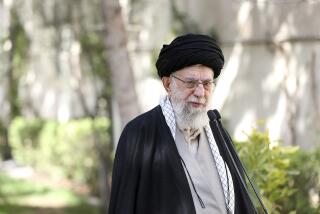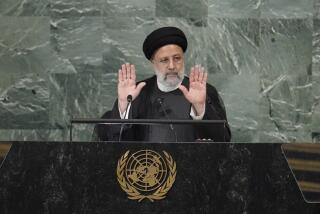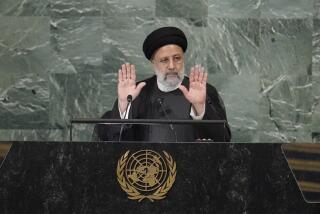Iran’s supreme leader dismisses nuclear deal offers as ‘not worth looking at’
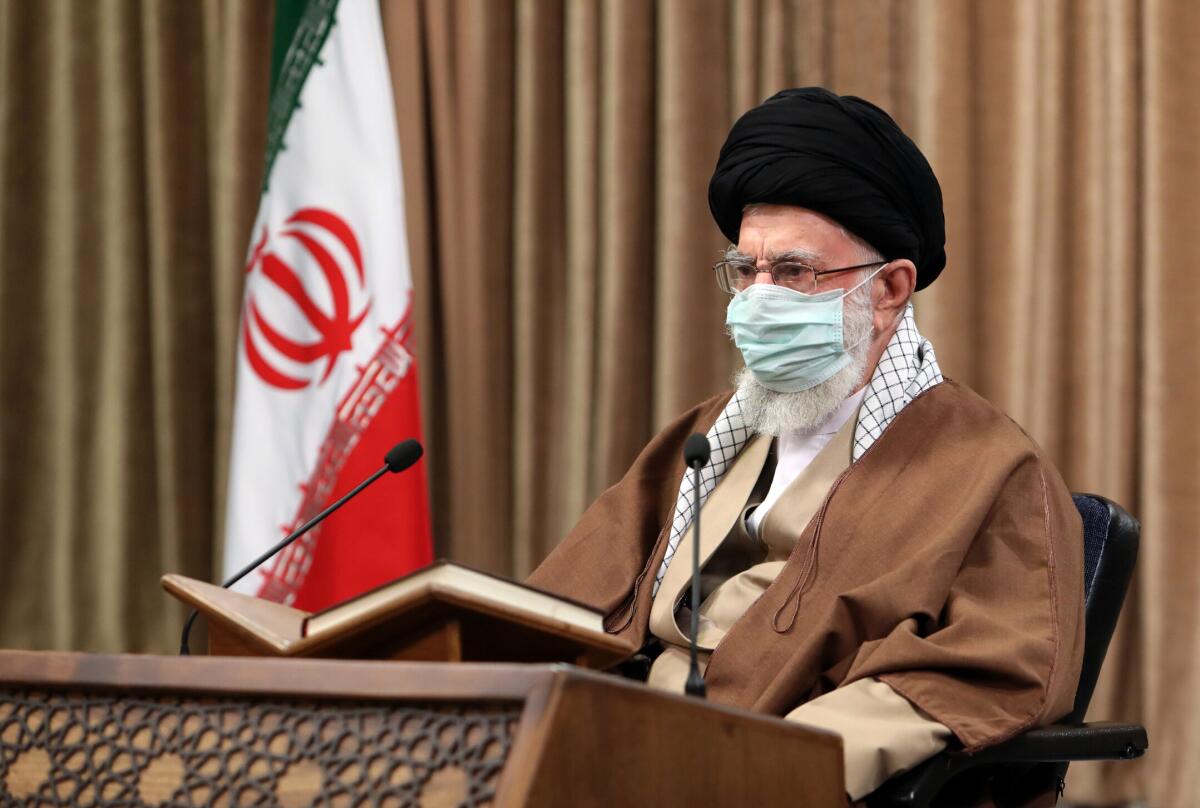
DUBAI, United Arab Emirates — Iran’s supreme leader Wednesday dismissed initial offers at talks in Vienna to save Tehran’s tattered nuclear deal as “not worth looking at,” attempting to pressure world powers after an attack on the country’s main nuclear enrichment site.
The comments by Ayatollah Ali Khamenei, who has final say on all matters of state in the Islamic Republic, came after a day that saw Iran’s president similarly ratchet up pressure over the accord. European powers warned Tehran that its actions were “particularly regrettable” and “dangerous.”
The talks already have been thrown into disarray by a weekend attack on Iran’s main Natanz nuclear enrichment site, an operation suspected to have been carried out by Israel. Tehran retaliated by announcing that it would enrich uranium up to 60% — higher than it ever has before but still lower than weapons-grade levels of 90%.
“The offers they provide are usually arrogant and humiliating [and] are not worth looking at,” the 81-year-old Khamenei said in an address marking the first day of the holy month of Ramadan in Iran.
He also criticized the U.S. and warned that time could be running out.
“The talks shouldn’t become talks of attrition,” Khamenei said. “They shouldn’t be in a way that parties drag on and prolong the talks. This is harmful to the country.”
The head of the U.N.’s nuclear watchdog is meeting with Iranian officials in a bid to preserve his inspectors’ ability to monitor Tehran’s atomic program.
Speaking to his Cabinet, an impassioned Iranian President Hassan Rouhani said the first-generation IR-1 centrifuges that were damaged in Sunday’s attack would be replaced by advanced IR-6 centrifuges that enrich uranium much faster.
“You wanted to make our hands empty during the talks, but our hands are full,” Rouhani said.
Rouhani added that “60% enrichment is an answer to your evilness. ... We cut off both of your hands, one with IR-6 centrifuges and another one with 60%.”
Rouhani also accused Israel of being behind the Natanz attack and threatened to retaliate.
‘Shadow’ conflict takes to the spotlight as Iran accuses Israel of attacking key nuclear site
Israel has not claimed the attack, which it rarely does in its ongoing shadow war against Tehran, but it also has not denied responsibility.
The talks in Vienna are aimed at finding a way for the United States to reenter Tehran’s nuclear agreement with world powers and have Iran comply again with its limits. The accord, from which former President Trump unilaterally withdrew the U.S. in 2018, prevented Iran from stockpiling enough high-enriched uranium to be able to pursue a nuclear weapon in exchange for the lifting of economic sanctions.
Late on Wednesday, the European Union said formal negotiations would resume Thursday in Vienna.
Rouhani in his comments Wednesday insisted that Iran is still hoping the Vienna talks lead to a negotiated settlement over its program — and the accompanying lifting of punishing sanctions. Khamenei said he believed in his negotiators, but kept up the pressure on the West in his remarks Wednesday night.
Start your day right
Sign up for Essential California for the L.A. Times biggest news, features and recommendations in your inbox six days a week.
You may occasionally receive promotional content from the Los Angeles Times.
“They must do what we say first, and we are assured that it’s done, then we will do what we are required to do,” he said.
France, Germany and Britain, all parties to the nuclear deal, only hours earlier issued a joint statement Wednesday expressing their “grave concern” over Iran’s decision to increase enrichment.
“This is a serious development since the production of highly enriched uranium constitutes an important step in the production of a nuclear weapon,” the countries said. “Iran has no credible civilian need for enrichment at this level.”
China and Russia also took part in the deal.
An attack on an Iranian nuclear facility must not derail talks.
U.S. Secretary of State Antony Blinken also called Iran’s enrichment decision a “provocative announcement.”
“It calls into question Iran’s seriousness of purpose in the nuclear talks,” he said in Brussels.
Iran insists its nuclear program is peaceful, though the West and the International Atomic Energy Agency say Tehran had an organized military nuclear program until the end of 2003. An annual U.S. intelligence report released Tuesday maintained the American assessment that “Iran is not currently undertaking the key nuclear weapons-development activities that we judge would be necessary to produce a nuclear device.”
Iran previously had said it could use uranium enriched up to 60% for nuclear-powered ships. However, the Islamic Republic currently has no such ships in its navy.
International inspectors say Iran plans to enrich uranium up to 20% at its underground Fordo nuclear facility
IAEA inspectors visited Natanz on Wednesday on their first trip since the weekend sabotage and found Iran preparing an above-ground area for the higher enrichment, the agency said.
In an interview with Iranian state television, Alireza Zakani, the hard-line head of the Iranian parliament’s research center, referred to “several thousand centrifuges damaged and destroyed” in the attack. However, no other official has offered that figure, and no images of the aftermath have been released.
More to Read
Sign up for Essential California
The most important California stories and recommendations in your inbox every morning.
You may occasionally receive promotional content from the Los Angeles Times.
